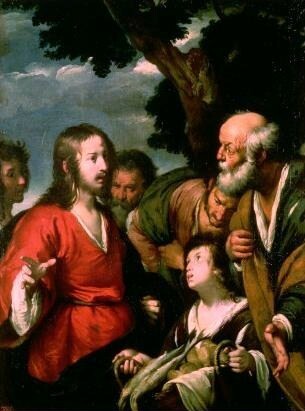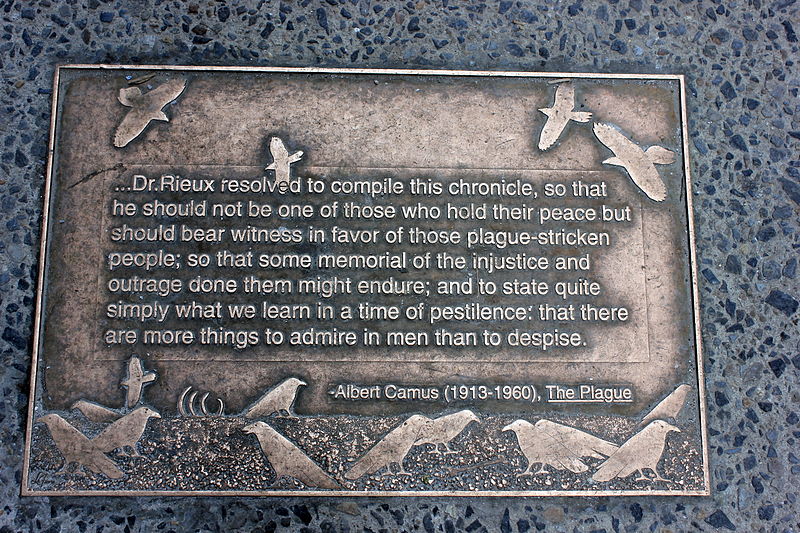
* * * *
Welcome to “read the Bible – expand your mind:”
This blog has four main themes. The first is that God will accept anyone. (See John 6:37.) The second is that God wants us to live lives of abundance. (John 10:10.) The third is that God wants us to do even greater miracles than Jesus did. (John 14:12.) The fourth – and most overlooked – is that Jesus wants us to read the Bible with an open mind. See Luke 24:45: “Then He” – Jesus – “opened their minds so they could understand the Scriptures.”
And this thought ties them together:
The best way to live abundantly and do greater miracles than Jesus is – as noted – to read the Bible with an open mind. For more, see the notes or – to expand your mind – see the Intro.
In the meantime:

This year’s Season of Lent continues. (See Ash Wednesday and the start of Lent.) But the 2020 version of this “solemn religious observance” is made even more solemn by the recent Coronavirus pandemic.
On that note – and if you want to open a “whole new can of worms” – try Googling the phrase, “No atheists in foxholes.” Some say that familiar aphorism is an attack on atheism, while others say it’s really an attack on Christianity. But it’s pointless here to argue which version is true. (See Titus 3:9, “avoid foolish controversies and genealogies … because these are unprofitable and useless.”)
The real point is that – especially in times of crisis like the one we’re in now – most people are way more likely to look for some source of spiritual comfort.
Which should come from the Bible, but for many people that Bible is way too long and way too complicated. Which raises the question: How can you best explain the Bible in the simplest possible terms? You know, in the kind of short-and-sweet sound bite that most people expect these days? (Since so many of them “have the attention span of a gerbil.”)
For me the best possible Bible sound bite – the best short summary of the message of the whole Bible – is Romans 10:9, “If you confess that Jesus is Lord and believe that God raised him from death, you will be saved.” (In the Good News Translation, fittingly enough.)
Of course John 3:16 is a nice sentiment too, but it’s a general statement “for the whole world.” To me, Romans 10:9 best sums up the entire message of the Bible. It’s more personal, and offers the kind of personal guarantee that many people are looking for in this time of crisis.

Which – in a way – brings up the DOR Gospel reading for March 19, Mark 6:30-46. It tells of Jesus feeding the multitude (or “the 5,000”). I covered that reading in two posts, Another view of Jesus feeding the 5,000, and Then Jesus “opened their minds.”
The problem is, that “other view” threatens the faith of some people. But it also supports the theory that we can solve any problem, ourselves, using the lessons of the Bible.
In Jesus “opened their minds,” I summarized the difference between the traditional (narrow-minded?) interpretation of this parable, and one that’s more in line with reason and experience.* I.e., in the narrow “traditional” interpretation, Jesus performed a fairly-routine magic trick. (A “pure miracle, plain and simple.”) The miracle can’t be explained rationally and was never meant to be understood rationally.
But since Jesus was and is the Son of God, what’s the big deal?
Poof, He made some extra food appear. But isn’t that the least you could expect from a close blood-relative of the Force that Created the Universe? On the other hand there is a non-traditional view, and that non-traditional view forces people to “expand their minds.” But it can also make some people very nervous, and even threaten their faith.
It’s based on the idea that many people in Jesus’ time never left home without taking a spare loaf of bread – or some other foodstuff – stashed in the folds of their robes. Under that theory, Jesus started off with a lesson in faith, and/or a lesson in sharing. In turn that example got a lot of other normally-greedy people to act on that faith, and share what they had.
Which led to this ending in the post:
Suppose the lesson Jesus intended to teach us was that – by His example – He got a bunch of normally-greedy people to share what they had. That by His example, Jesus got those normally-greedy people to share so much of their own stuff that no one – in the crowd of “5,000 plus” – went hungry. And more than that, there was even a surplus. The question is:
Which would be the greater miracle?
(If that’s too subtle: The Son of God making some extra food appear, or – by His example – getting a lot of greedy people like us to share so much that no one in those “5,000-plus*” went hungry?)
* * * *
So what’s that got to do with the present Coronavirus crisis? Just this, that we can solve this problem by pulling together, and by avoiding the temptation to be greedy and selfish. (In other words, by following the “non-traditional” example of Jesus in Mark 6:30-46.)
More to the point, by realizing that all life is just a gift we should cherish and enjoy, while we can. (See 1st Corinthians 4:7, “What is so special about you? What do you have that you were not given? And if it was given to you, how can you brag?”) And that the better way to live is to do what Jesus did, to love and care for all people in all conditions, “even to the point of death.”
Or as one writer said recently:
Being alive always was and will always remain an emergency; it is truly an inescapable “underlying condition…” This is what Camus meant when he talked about the “absurdity” of life. Recognizing this absurdity should lead us not to despair but to a tragicomic redemption, a softening of the heart, a turning away from judgment and moralizing to joy and gratitude.
That’s from a review of Albert Camus’ “The Plague.” Written in 1947, The Plague tells the story of a “plague sweeping the French Algerian city of Oran.” The novel poses a number of questions about “the nature of destiny and the human condition.” The book’s characters, “from doctors to vacationers to fugitives,” all show the effects of a plague on a community.
One lesson? If we as a nation believe in and act on Romans 10:9, we “will be saved.” And in what could be an even greater miracle – greater even than the Son of God making some extra food appear? – it might even lead to a massive change in our present national life.
That is, the present “Coronavirus” might lead to a general and sweeping American “softening of the heart.” Along with “a turning away from judgment and moralizing to joy and gratitude.” Or even a realization that there “are more things to admire in [all] people than to despise…”
And wouldn’t that qualify as an “even greater miracle than Jesus did?” (John 14:12.)
* * * *

* * * *
The upper image is courtesy of 2019–20 coronavirus pandemic – Wikipedia. The full caption: “Supermarket shelves that stock dry pasta varieties are almost empty due to panic-buying as the result of the COVID-19 coronavirus outbreak. This was taken at a Woolworths supermarket in Melbourne, Australia.” The article further noted: “The outbreak was first identified in Wuhan, China in December 2019, and was recognized as a pandemic by the World Health Organization on 11 March 2020. As of 21 March, more than 275,000 cases of COVID-19 have been reported in over 185 countries and territories, resulting in more than 11,300 deaths and 90,000 recoveries.”
Re: Atheists in foxholes. For other views, see Atheists in Foxholes, in Cockpits, and on Ships, or We Should Stop Saying There Are No Atheists In Foxholes.
Romans 10:9. Note that Paul’s Epistle to the Romans is one of the first books of the New Testament, generally said to have been written somewhere between 55 and 58 A.D. (“C.E.” to the politically correct.) As to which NT book was first: I Googled “what was the first book of the new testament to be written,” and got a variety of answers. Some authorities say Galatians and the Letter of James came before Romans, while some say the Gospel of Matthew was the first written, in 35 A.D. Which would be two years after the presumptive year of Jesus’ crucifixion. Isaac Asimov – in his Asimov’s Guide to the Bible: Two Volumes in One – indicated that Romans was most likely written in 58. As for James, Asimov wrote of the letter possibly being written any time between 48 and 90 A.D. (See pages 1159-60.) He agreed that Galatians was “possibly the earliest of all the books of the New Testament to achieve written form. (1116.) As for Matthew and Mark, he suggests the former was written around 70 A.D., preceded by the latter – Mark – by some four years or so. (771,903)
Re: The Gospel reading for March 19. The other readings were “AM Psalm [83]or 42, 43; PM Psalm 85, 86,” Genesis. 46:1-7,28-34; and 1 Corinthians. 9:1-15. March 19 was also the Feast Day for St. Joseph, with the following readings, “AM: Psalm 132; Isaiah 63:7-16; Matthew 1:18-25[,] PM: Psalm 34; 2 Chronicles 6:12-17; Ephesians 3:14-21.”
Re: “Reason and experience.” See Wesleyan Quadrilateral – Wikipedia, about the “methodology for theological reflection that is credited to John Wesley… This method based its teaching on four sources as the basis of theological and doctrinal development. These four sources are scripture, tradition, reason, and Christian experience.”
Re: “5,000-plus.” See Mark 6:44. In one translation, “The number of the men who had eaten was five thousand.” In another, “A total of 5,000 men and their families were fed.” See also Matthew 14:21, “The number of those who ate was about five thousand men, besides women and children.”
Re: “As one writer said recently.” The full citation is Alain de Botton: In ‘The Plague,’ Camus reminds us that suffering is random.
The “feeding” image is courtesy of Feeding the multitude – Wikipedia. The caption: “Jesus feeding a crowd with 5 loaves of bread and two fish,” by Bernardo Strozzi, circa 1615.
The lower image is courtesy of The Plague – Wikipedia. The full caption is from a quote in the book: “Dr Rieux resolved to compile this chronicle.”
* * * *
As noted in the opening blurb, this blog has four main themes. The first is that God will accept anyone. (John 6:37, with the added, “Anyone who comes to Him.”) The second is that God wants us to live abundantly. (John 10:10.) The third is that we should do greater miracles than Jesus. (John 14:12). A fourth theme: The only way to do all that is read the Bible with an open mind:
…closed-mindedness, or an unwillingness to consider new ideas, can result from the brain’s natural dislike for ambiguity. According to this view, the brain has a “search and destroy” relationship with ambiguity and evidence contradictory to people’s current beliefs tends to make them uncomfortable… Research confirms that belief-discrepant-closed-minded persons have less tolerance for cognitive inconsistency…
So in plain words, this blog takes issue with boot-camp Christians. They’re the Biblical literalists who never go “beyond the fundamentals.” But the Bible can offer so much more than their narrow reading can offer… (Unless you want to stay a Bible buck private all your life…) Now, about “Boot-camp Christians.” See for example, Conservative Christian – “Career buck private?” The gist of that post is that starting the Bible is like Army Basic Training. You begin by“learning the fundamentals.” But after boot camp, you move on to Advanced Individual Training.” As noted in the opening blurb, this blog has four main themes. The first is that God will accept anyone. (John 6:37, with the added, “Anyone who comes to Him.”) The second is that God wants us to live abundantly. (John 10:10.) The third is that we should do greater miracles than Jesus. (John 14:12). A fourth theme: The only way to do all that is read the Bible with an open mind:
…closed-mindedness, or an unwillingness to consider new ideas, can result from the brain’s natural dislike for ambiguity. According to this view, the brain has a “search and destroy” relationship with ambiguity and evidence contradictory to people’s current beliefs tends to make them uncomfortable… Research confirms that belief-discrepant-closed-minded persons have less tolerance for cognitive inconsistency…
Now, about “Boot-camp Christians.” See Conservative Christian – “Career buck private?” The gist of that post is that starting the Bible is like Army Basic Training. You begin by“learning the fundamentals.” But after boot camp, you move on to Advanced Individual Training.” Also, and as noted in “Buck private,” I’d previously said the theme of this blog was that if you really want to be all that you can be, you need to go on and explore the “mystical side of Bible reading.*” In other words, exploring the mystical side of the Bible helps you “be all that you can be.” See Slogans of the U.S. Army – Wikipedia, re: the recruiting slogan from 1980 to 2001. The related image below is courtesy of: “toywonders.com/productcart/pc/catalog/aw30.jpg.” *

Re: “mystical.” As originally used, mysticism “referred to the Biblical liturgical, spiritual, and contemplative dimensions of early and medieval Christianity.” See Mysticism – Wikipedia, and the post On originalism. (“That’s what the Bible was originally about!”)
For an explanation of the Daily Office – where “Dorscribe” came from – see What’s a DOR?